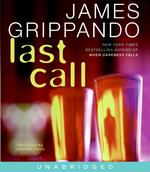- ホーム
- > 洋書
- > 英文書
- > Literary Criticism
Full Description
Malaysian Chinese (Mahua) literature is marginalized on several fronts. In the international literary space, which privileges the West, Malaysia is considered remote. The institutions of modern Chinese literature favor mainland China, Taiwan, and Hong Kong. Within Malaysia, only texts in Malay, the national language, are considered national literature by the state. However, Mahua authors have produced creative and thought-provoking works that have won growing critical recognition, showing Malaysia to be a laboratory for imaginative Chinese writing.
Highlighting Mahua literature's distinctive mode of evolution, Cheow Thia Chan demonstrates that authors' grasp of their marginality in the world-Chinese literary space has been the impetus for—rather than a barrier to—aesthetic inventiveness. He foregrounds the historical links between Malaysia and other Chinese-speaking regions, tracing how Mahua writers engage in the "worlding" of modern Chinese literature by navigating interconnected literary spaces. Focusing on writers including Lin Cantian, Han Suyin, Wang Anyi, and Li Yongping, whose works craft signature literary languages, Chan examines narrative representations of multilingual social realities and authorial reflections on colonial Malaya or independent Malaysia as valid literary terrain. Delineating the inter-Asian "crossings" of Mahua literary production—physical journeys, interactions among social groups, and mindset shifts—from the 1930s to the 2000s, he contends that new perspectives from the periphery are essential to understanding the globalization of modern Chinese literature. By emphasizing the inner diversities and connected histories in the margins, Malaysian Crossings offers a powerful argument for remapping global Chinese literature and world literature.
Contents
Acknowledgments
A Note on Romanization, Characters, and Translation
Introduction: Southern Crossings: The Covert Globality of Mahua Literature
1. Doubly Local: Lin Cantian and the Contrapuntal Genesis of Mahua Novelistic Fiction
2. Channeling Exemplarity: Han Suyin's Bifocal Writing Practice in Malaya
3. Cosmopolitan Visions of Drift: Wang Anyi and the Relay of Diasporic Literary Imagination
4. Off-Center Articulations: Li Yongping's Transregional Literary Production
Coda: Always the Internal Other: Mahua Literature and the Recognition of Alterity
Notes
Bibliography
Index








